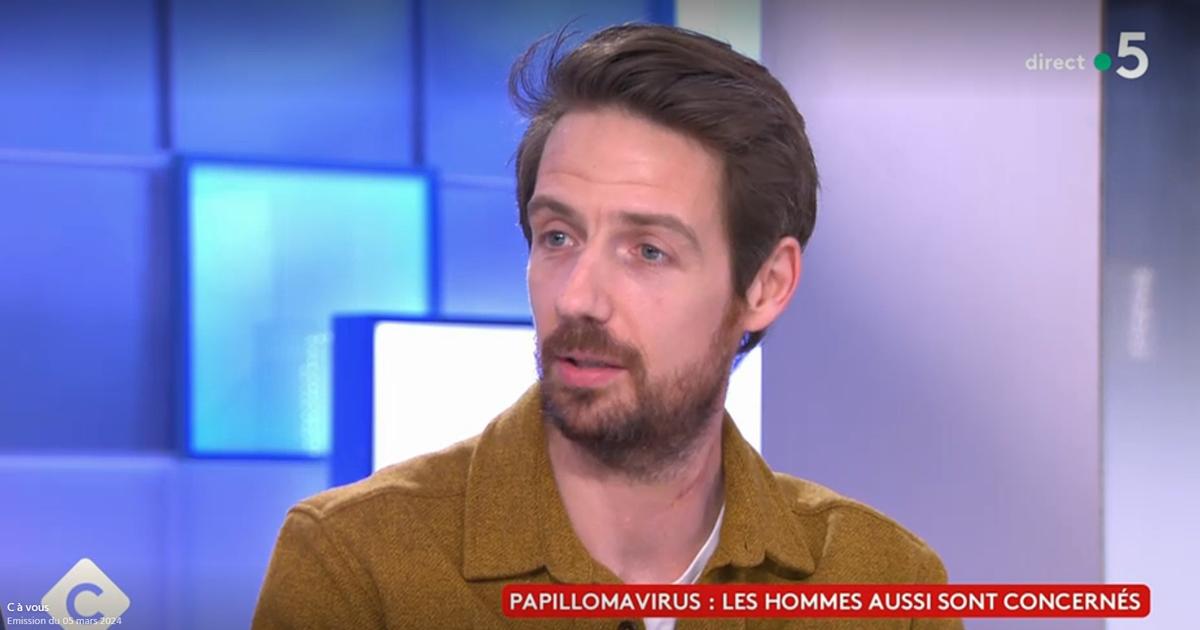It's not just the coronavirus that needs to be eliminated.
This Monday, the same day as the launch of the vaccination for over 75s, a strong campaign to raise awareness of cancers related to human papillomavirus (HPV), this very common sexually transmitted infection, is also starting.
It will be broadcast on television and on social media.
Raw language of adolescents, evocations of sexual intercourse, daring jokes… The clip, produced by the association Imagyn and its godmother, the actress Gwendoline Hamon, encourages vaccination against these viruses responsible for 6,000 cancers per year, for 2,900 deaths - including more than 1110 are women affected by cervical cancer.
The other reason for this communication plan?
New developments concerning vaccination but also screening.
Shocking figures
According to Public Health France, vaccination could prevent 1,100 deaths per year of women with uterine cancer.
Professionals estimate that the generalization of the vaccine to both sexes can reduce by 90% the number of cancers of the cervix but also precancerous lesions (80%).
READ ALSO>
Gwendoline Hamon: "Cancers linked to the papillomavirus can be eradicated"
Vaccination can also prevent many cancers of the throat, larynx (around 1,500 per year), anus (1,500) and sex (200).
Young boys now concerned
Recommended in France since 2008 for young girls, vaccination against HPV has been included in the vaccination calendar for all young boys aged 11 to 15 since last year.
Since January 1, it has also been reimbursed at 100%.
France thus joins the list of around thirty countries already advising this vaccination to both sexes.
As for girls, the vaccine consists of two doses to be injected between 11 and 15 years old.
Catch-up is possible between 15 and 19 years old with three doses.
“These kids are incredibly lucky.
Beyond the fact that many of them have not yet had sex and so it is time to act, their immune response is excellent at this age.
It will be able to protect them for the whole life, or almost ”, underlines the professor Didier Riethmuller, head of the department of gynecology of the CHU of Grenoble.
He points out that "the spectrum of cancerous illnesses induced by HPV is broader in men than previously thought".
“By vaccinating both sexes, we protect each other and regardless of sexual orientation.
It is this logic that makes it possible to slow down the transmission of papillomaviruses ”, specifies the president of the Imagyn association, Coralie Marjollet.
Morning essentials newsletter
A tour of the news to start the day
Subscribe to the newsletterAll newsletters
“The challenge is sizeable,” says the doctoral student in sociology of health Cécile Lavier.
Between the ages of 11 and 15, you don't really go to the pediatrician, not too much to the gynecologist and rarely without the parents to the general practitioner.
"
A new screening
Since the spring, women aged 30 to 65 have been able to be tested directly for the papillomavirus through HPV tests.
Benefits ?
Its cost is now covered by Health Insurance.
Better: it is the High Authority of Health (HAS) which recommends using these tests, more reliable than the previous ones, during a screening for cancer of the cervix.
READ ALSO>
Gynecologists at war against fake news
With these new tests, the detection technique changes, but not the sample (a smear).
Another advantage is that these new tests, if they are negative, make it possible to space out the checks every five years, compared to three years previously.
“This new system is more efficient because we are looking directly for the virus and not the consequences of an infection,” underlines Professor Didier Riethmuller.
There are hardly any false negatives.
Before, we were wrong in 10 to 15% of cases!
"
The specialist praises the “rediscovered power to reassure patients”.
Last positive point: carried out on time, these tests also make it possible to avoid delicate operations on young women of childbearing age.
It's urgent.
Only 24% of young girls had received two doses of the vaccine in 2018. A low figure compared to the 60% target set by health authorities.






